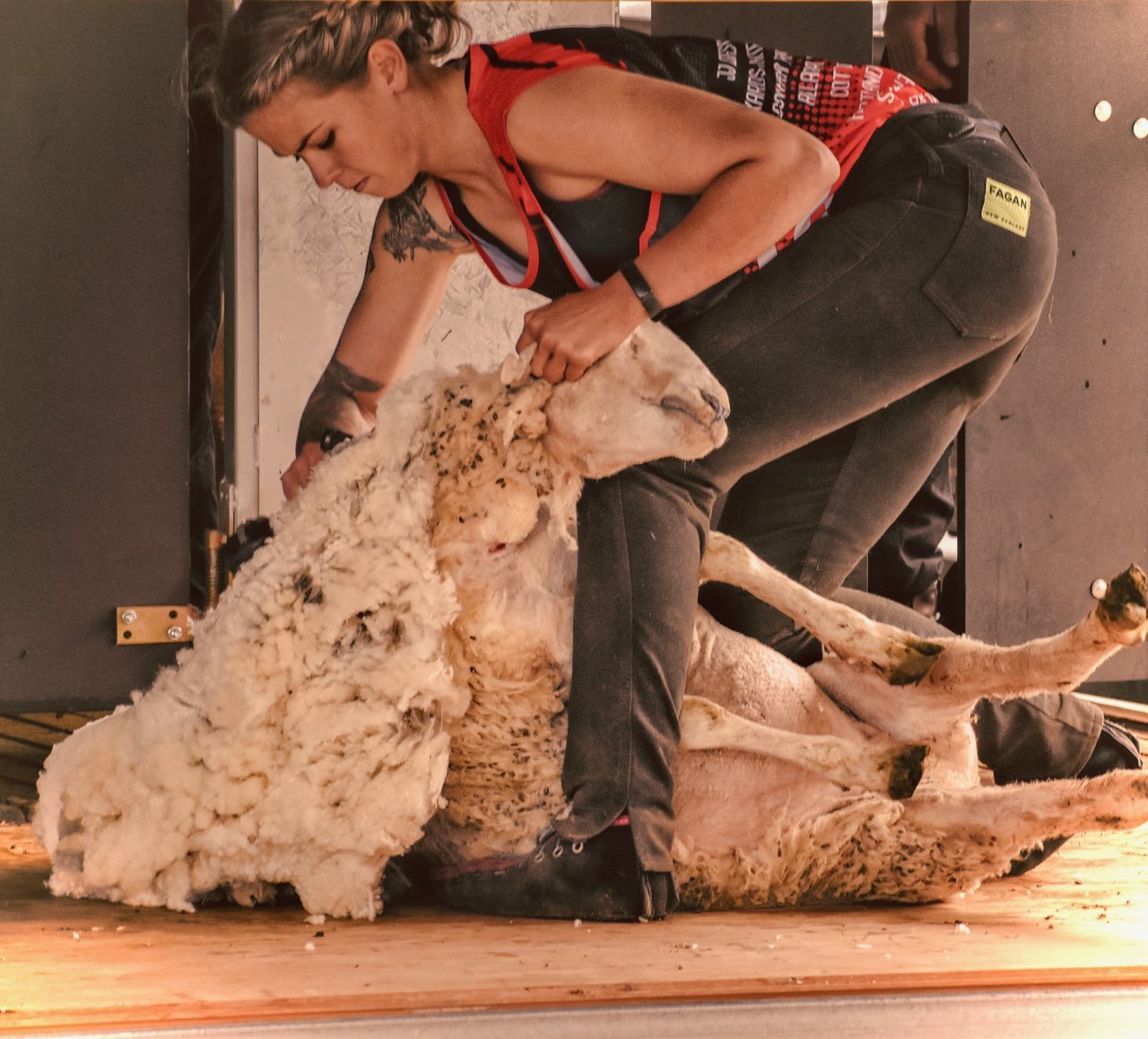#SheCan: The Shearer and Farmer
#SheCan proudly sponsored by the AgriFutures Australia Rural Women’s Award
“As a kid, you were always most helpful during lamb marking. The ‘apprentice role’ was loading the green rings onto the applicators, and I can distinctly remember being very excited that I was allowed to catch the lambs.
Looking back, it’s probably telling that I preferred the harder job because Dad was concerned it was outside of the scope of my abilities and I needed, even as a youngster, to prove him wrong. Helping wasn’t forced on us- we only joined in if we really wanted to.
Agriculture wasn’t on my radar during my High School years- in fact, I didn’t even study Ag. After receiving Dux of Year 11, I was accused (falsely) of cheating in my end of year exams by some other kids in my year. I wanted to prove them wrong, so I went overboard with study in Year 12.
I gave up everything for a good ATAR, and by the time I got it, my mental health was too out of whack to enjoy it or even feel proud of my achievement.
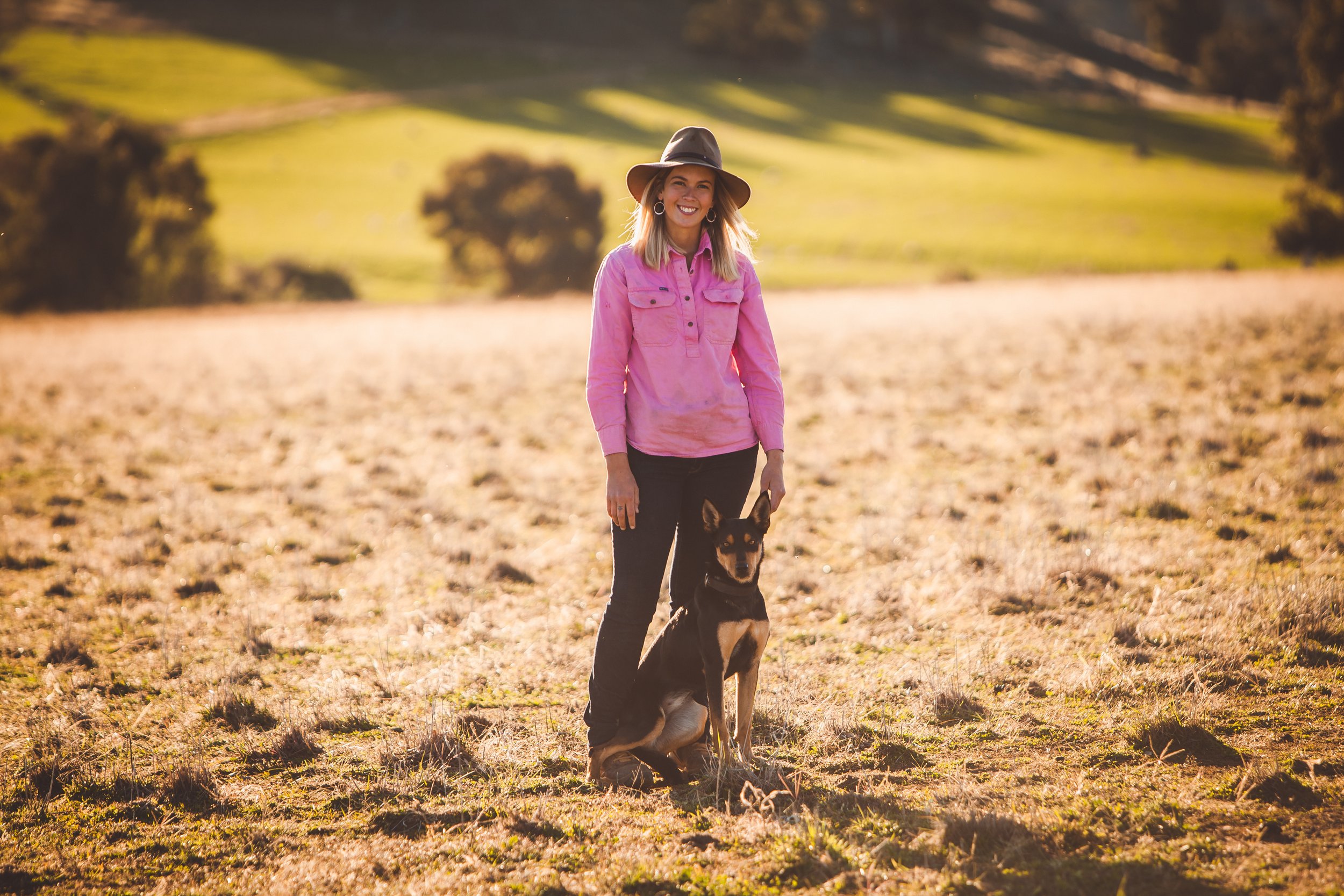
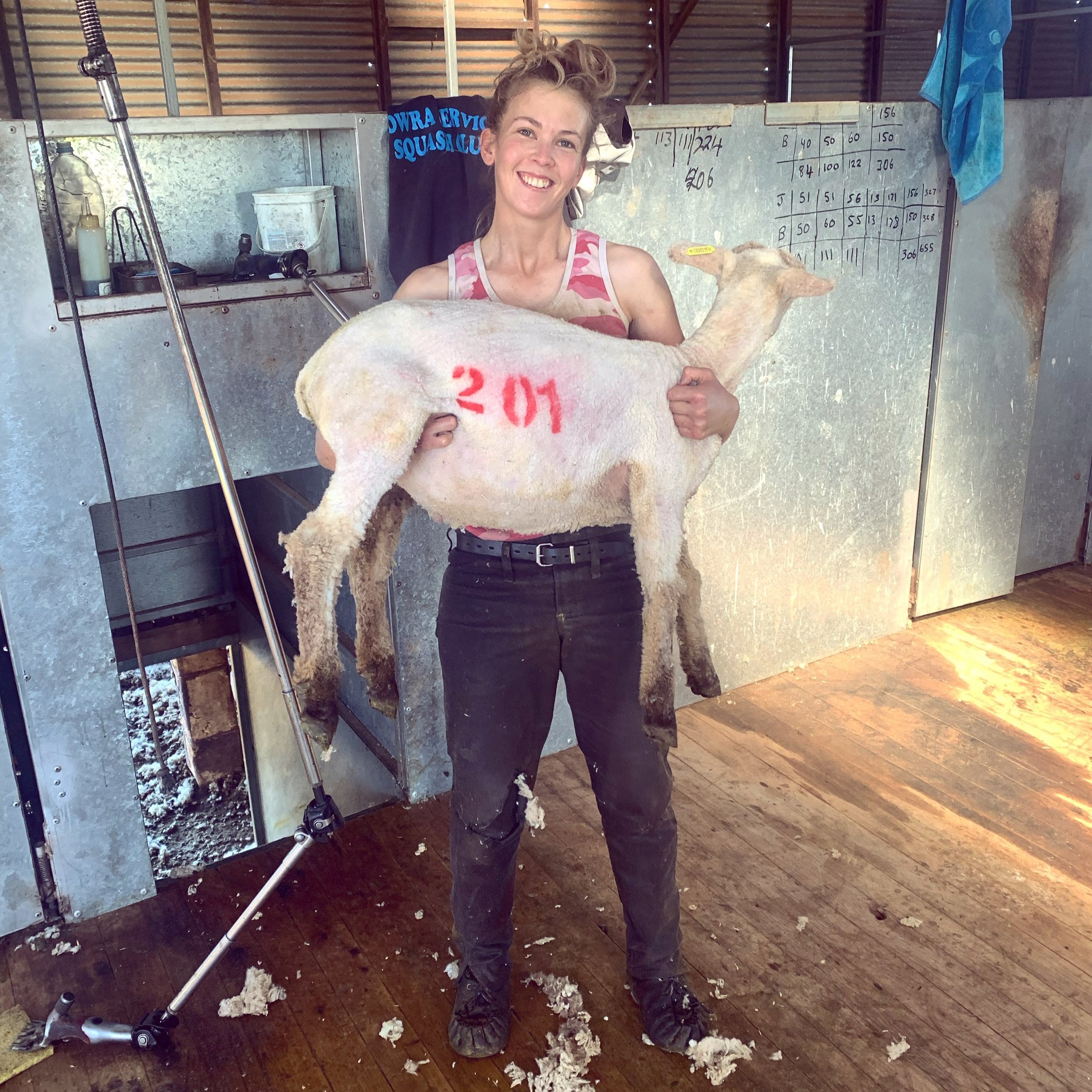
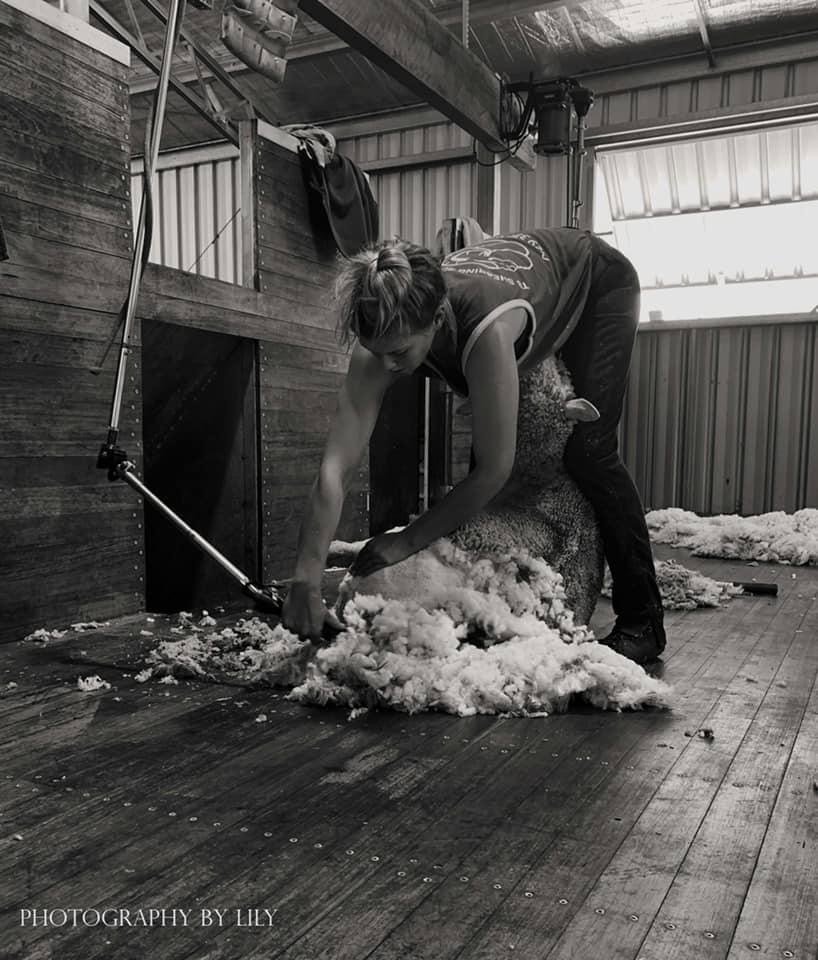
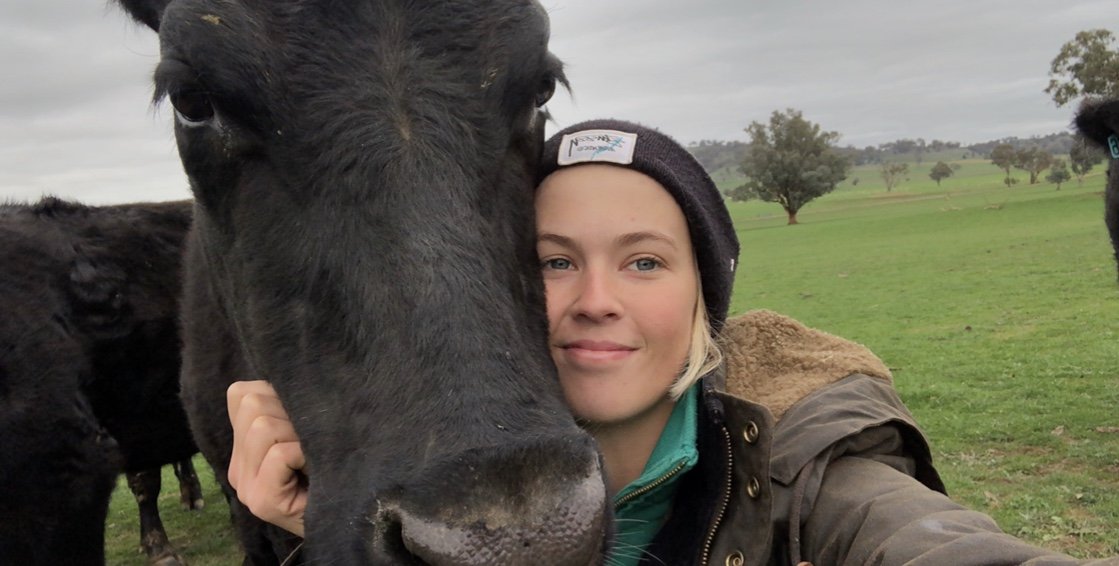
That story is really pivotal to my choices in the years after school. I took a gap year and spent many years afterwards learning how to figure out who I was and what I really wanted.
I am, however, grateful for my experience in High School- I wouldn’t have started working on the Farm otherwise.
I shudder to think I could have missed out on the wonderful, fulfilling life I currently lead if I had kept barrelling down that academic pathway because I thought ‘that’s what I should be doing’.
I had worked on the Farm for about four years before I learnt to shear. I attended an AWI funded shearing school at Steam Plains in Deniliquin, for the simple reason that Dad is a self-taught shearer and wanted me to learn properly so it was easier on my body.
Unfortunately, or fortunately for him, I was hooked.
Learning to shear was easily the hardest thing I’ve ever done. Anybody who is learning to shear right now will be disappointed by this answer, but it didn’t feel ‘good’ for a long time.
It takes an enormous amount of practice and it’s hard on your body until you learn to hold the sheep properly and get a bit of speed about you.
In saying that, the challenging nature of the sport is the part of shearing that I love.
You’re never finished learning to shear and the only thing stopping you from getting a better tally is you- it’s a mental game as much as anything else.
When I first started, it was just about the thrill of the sport. I only shear on the weekends, so the financial benefits of shearing now have become a larger driver for me as I get older.
As a female in a male-dominated industry, I have grown to like the phrase ‘sometimes a cigar is just a cigar’.
I think if I read into every comment, every ‘vibe’ I got off the Farmers or people I’ve worked with, I’d go crazy- and I firmly believe that you can’t live your life on the defensive.
For sure, when I start shearing in a new shed, the Farmers are watching me.
I have always made sure I turn up on time, I don’t smoke, I don’t swear, I speak to the Farmers and the people I work with, I shear as fast and as cleanly as I can and I make a point of never losing my temper.
I think I have had to do that to earn the same respect a male Shearer gets just for turning up- but that has meant that after a few years, I have a great reputation and a run of profitable, easy jobs.
I’ve lost count of the amount of times I’ve been in a shed, with dungas (shearing pants) and a shearing singlet on, and a Farmer has approached me and started telling me what he would like done with the wool, as though I were the Roustabout.
In the few years I’ve been shearing, however, I’ve felt a change in the way female Shearers are received, which is really heartening- and I’m sure it will only continue to get better.
I’ve met some real characters during my short shearing career.
I once had an old man, who had to be at least 80 years old, tell me that if he were sixty years younger he’d be asking me out to tea that night. I asked him to have a talk to my boyfriend, because he hadn’t taken me out to dinner in ages!
My biggest achievement to date is shearing 232 in a day. I ran out of sheep before I could get 250.
A few weeks ago, I shore 50 big crossbred ewes in a run (2 hours), with a long drag (that means that after I catch the sheep, I have to pull it a long way in order to get to my stand, where I shear it).
I think I’m prouder of the latter because I had given up on achieving that one. I thought I would never be strong enough.
I call myself a Farmer first and foremost, because that’s what I do full-time,
and then I call Shearing my ‘fuller-time’ job.
I’ll be joining the family partnership soon if all goes well, so I have big dreams for the business and our future.
I can’t imagine myself having a great deal of time to shear once I start a family and try to be a Farmer at the same time, but I aim to keep my finger on the pulse.
Once you learn to shear, you find that people call you a few times a week because they need a hand, and I know that never stops, no matter how long it’s been since you last picked up the bog-eye (handpiece).
Advice to young women in agriculture
My advice to other young women interested in shearing and agriculture would be to take the time to attend an AWI shearing school. They’re free, catered and usually provide free accommodation on campout.
I would then encourage learners to shear with a qualified trainer whenever they can. Taking the time to learn your craft properly will pay off in dividends.
I enjoy shearing big sheep, such as Dorsets, because I know how to hold them.
My back never gets sore when I shear, unless I’m bent over tough merinos all day, and I owe that to my training.
The most successful Shearers will treat their bodies as though they are an athlete
- which they are!
I’ve certainly had my run-ins with imposter syndrome, but being humble about your abilities is not always a bad thing, as long as you still believe in yourself.
Being an ‘imposter’ means that you don’t have to pretend to know everything.
If your current skills and experience are valued, you will become much more successful if you are open to learning, which can only take place if you surround yourself with people who also want to improve themselves.
It’s important to have the ability to use adversity as a motivator.
In my mind, there are three things that make a successful woman in ag: grit, determination and her network.”
-Jo Treasure
What does a day Shearing look like?
4:00am-5:00am: A typical day of Shearing requires an early start. Depending on how far I have to drive, I’m usually up between four and five a.m. Lots of people wouldn’t bother getting up that early, but I own a million animals and I love food so I put a lot of effort into my lunches…
7:00am: I aim to arrive at the shed at about 7am to set up my handpieces, warm up my EVO (shearing machine), have a good look at the sheep so I can select the perfect comb and pick a good playlist. A shearing day consists of 4, 2-hour long runs [periods of shearing]. So, you shear for 2 hours, then have a 30 minute break, before getting back into it.
9:00am-9:30am: Morning Smoko (time to catch your breath and have a bite to eat)
9:30am: The second run is the most mentally challenging for me, because that first thirty minute break seems to go by in the blink of an eye. If you drag a ewe out with 30 seconds left on the clock, and it takes you 2.5-3 minutes to shear it, you’ve eaten into your break.
12:00pm: We get an hour for lunch. You then have to unload and re-load your handpieces, wash your hands (water for washing hands is a luxury that is not always provided by the Farmer), have a quick bite to eat, sometimes help the roustabout pen up, and then try to sit down for a minute or two before you’re back into a physically demanding task for another 2 hours.
1:00pm: the third run starts for another two hour session.
3:00pm-3:30pm Afternoon Smoko
3:30pm a lot of people only shear for one hour rather than two at the end of the day.
5:00pm: After you’ve finished, you often have a long drive home, before you unload your gear. You then have to wash and grind your cutters and combs which takes about half an hour. By the time I’ve showered and looked after a few domestic duties, I usually fall asleep on the lounge right after I eat dinner, before taking myself to bed, ready to do it all again on Sunday!
Our #SheCan Campaign is proudly sponsored by AgriFutures Australia, Rural Women’s Award.
AgriFutures Rural Women’s Award is Australia's leading prize celebrating the courageous leadership and entrepreneurial drive of women involved in Australia's rural and emerging industries, businesses and communities.
For over 20 years, the Award has garnered a significant and respected status among parliamentarians, industry, media and Award alumni. Each State and Territory Winner receives a $15,000 Westpac grant for their project, business or program, access to professional development opportunities and alumni networks.
AgriFutures Australia is committed to the future growth and advancement of the Rural Women’s Award as a means of identifying, celebrating and empowering women to make decisions that ensure our rural industries prosper now, and into the future.

